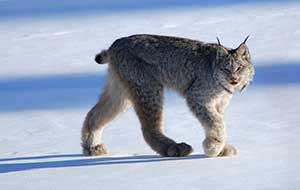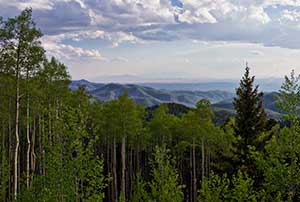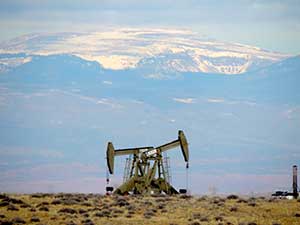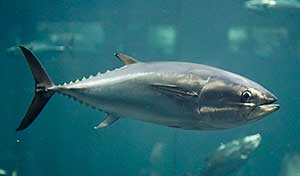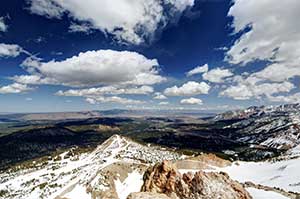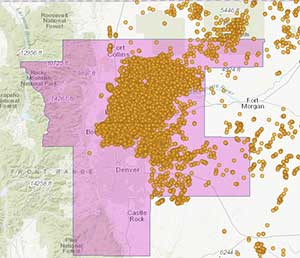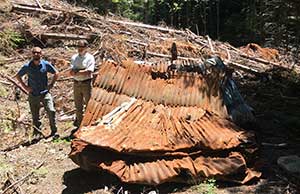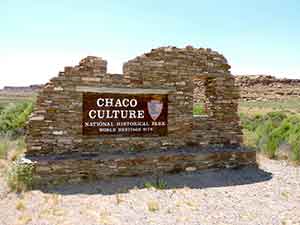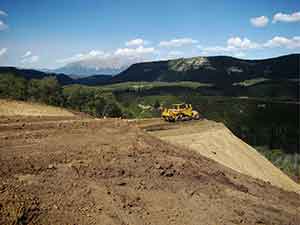
Nationwide ban sought on wildlife-killing “cyanide bombs”
On August 10, we petitioned the EPA to outlaw M-44 “cyanide bombs,” which cause agonizing deaths for thousands of animals every year. Intended to kill coyotes, foxes, and wild dogs—purportedly to address conflicts with livestock—the bombs also pose risks of accidental injury and death for people, family dogs, and imperiled wildlife. The devices are meant to spray deadly sodium cyanide into the mouths of unsuspecting carnivores lured by smelly bait, but anyone or anything that pulls on the M-44 devices can be killed or injured by the spray of sodium cyanide. According to Wildlife Services’ own data, M-44s killed 13,530 animals in 2016—321 of them non-target animals—but the true number of deaths is likely much higher. We won’t rest until these indiscriminate killers are banned nationwide. Court upholds settlement protecting Montana lynx from trapping
In the face of an appeal from the Montana Trappers Association, the Ninth Circuit Court of Appeals upheld Guardians’ and our allies’ 2015 settlement agreement with the state of Montana that protects Montana’s imperiled Canada lynx from being caught in traps set for other animals. The agreement established “lynx protection zones” in parts of northwest Montana and the Greater Yellowstone Area, inside which severe restrictions on traps are robustly regulated. The agreement also helps aid recovery of rare wolverines, maintaining the closure on wolverine trapping in the state. Since the agreement was finalized in September 2015, only one lynx was reported caught in a trap in Montana, in an area located outside the lynx protection zone. Read more »Win for wildlife and quiet use on Santa Fe National Forest
On July 24, the Tenth Circuit Court of Appeals dismissed the third appeal by an off-road vehicle advocacy organization challenging the U.S. Forest Service's 2012 decision to reduce motor vehicle travel on the Santa Fe National Forest. The 2012 Santa Fe travel management plan protects forest resources and wildlife, including Mexican spotted owls, Jemez mountain salamanders, and New Mexico jumping mice, by restricting motorized use to identified routes and areas. The plan calls for rewilding more than 5,000 miles of motorized routes, paths, and trails, but still allows motorized use to continue on more than 2,400 miles of routes in the forest. Prior to 2012, the Forest Service allowed motorized vehicles to travel uninhibited across the forest, without regard for damage to national resources, harassment of wildlife, or disruption of quiet landscapes. Read more »Guardians urges defense of Utah monuments from fracking threat
Last month we took aim to thwart plans by President Trump and his Interior Secretary, Ryan Zinke, to open up more than 160,000 acres of public lands for fracking next to Dinosaur and Bears Ears National Monuments in Utah. The move to sacrifice these public lands for fossil fuels comes as a slap in the face to the many Americans who want their public lands protected; a 2017 Colorado College poll found that Westerners want protection of public lands to take precedence over energy development by a margin of 3 to 1. While Trump seems unwilling to listen to the vast majority who support public lands, our Congressional representatives will. But first, they must hear our voices—and fast—in order to preserve these stunning and sacred landscapes. Read more »Trump administration denies Pacific bluefin tuna Endangered Species Act protection
On August 7, the Trump administration rejected Guardians’ and our allies’ petition to protect imperiled Pacific bluefin tuna under the Endangered Species Act. Overfishing has driven the tuna—a luxury item on sushi menus—to less than three percent of its historic population; Japan, South Korea, Mexico, the United States, and other countries have all failed to reduce fishing enough to protect the species. Almost all Pacific bluefin tuna harvested today are caught before reproducing, putting in doubt their future as a species. In October 2016, in response to our petition, the National Marine Fisheries Service announced the species likely warrants federal protection; sadly, the Trump administration, in typical anti-environmental fashion, reversed course, making it far less likely we can reverse the tuna’s human-driven trend toward extinction. Read more »Forest Service Mammoth Mountain Base Area land exchange needs analysis
The Forest Service’s draft analysis of its land exchange proposal with California’s Mammoth Mountain Ski Area fails on many fronts, a Guardians analysis found. The lands would be intensively redeveloped if the land exchange were completed, affecting clean water, clean air, wildlife, and traffic. Guardians has demanded that the Forest Service meet its obligations under federal law and analyze the ramifications of the land exchange before it takes place. The Forest Service is legally required to do an environmental analysis of the trade, as well as to determine if the exchange is in the public interest. In this case the Forest Service’s failure to disclose the details of the trade leaves the public in the dark, making it impossible to determine if the land exchange is in our best interest. Read more »Protecting clean air in Denver from fracking
In July we moved to defend clean air in the Denver Metropolitan Area, taking legal action to overturn more than 36,000 acres of fracking on the Pawnee National Grassland. The region has been violating legal limits on smog pollution for far too long, and auctioning off tens of thousands of acres for fracking is a step in the wrong direction: fracking is a proven contributor to the region’s smog problem. Even more disturbing, the Bureau of Land Management acknowledged the public health threat this auction poses—and auctioned off the lands anyway. The Denver Metro Area is home to the majority of Colorado’s population, making this case critical for public health. We say Westerners’ right to breathe clean air must come before the demands of the fracking industry. Read more »Protecting Glide, Oregon’s source of drinking water
A unique partnership between Guardians and the Umpqua National Forest is helping to close old roads and restore the health of a watershed critical to the drinking water supplies of the small town of Glide, Ore. We recently visited Glide to learn how the Forest is keeping the river clean and clear on a budget of under $800,000 per year—less than 20 percent of what is needed to maintain the 4,706 miles of old road for which it is responsible. Read more »View the photo album » Updated Chaco map highlights threats, opportunities
The Greater Chaco region of northwestern New Mexico is under siege by fracking. What’s at stake is no less than thousands of years of culture. Learn more about the threats and opportunities facing this valuable region by checking our interactive online map, which also enables you to take an interactive photo tour of the area. We plan to continue updating the map with photos so you can get a comprehensive, on-the-ground perspective of what we’re up against—and what we’re fighting for. If you have photos you are willing to share and would like us to incorporate them into the map, please email rsobel@wildearthguardians.org. Read more »photo credits: (Left column) Coyote howl—Dave Jones. Canada Lynx—Keith Williams, Flickr. Santa Fe NF—Thomas Shahan, Flickr. Fracking Utah monuments—WildEarth Guardians Flickr. Pacific bluefin tuna—opencage.info. Mammoth Mountain—Lukasz Lech Flickr. Producing wells Denver—WildEarth Guardians. Glide OR—WildEarth Guardians Flickr. Chaco cultural site—WildEarth Guardians Flickr. (Right column) Lydia Bleifuss Bio— Lydia Bleifuss. Kasra Ramez Bio— Kasra Ramez. Arch Coal scars— WildEarth Guardians. |
Share this message: Activist Spotlight:
 Lydia Bleifuss is a recent graduate of Lewis & Clark College in Portland, Ore., and is a summer intern for Guardians’ Wild Rivers program. She has a B.A. in Environmental Studies and Surface Water Conflict Management with a focus on river development and water privatization. For the past four summers, she worked as a whitewater river guide in Buena Vista, Colo. She previously interned with Waterkeeper Alliance and volunteers remotely for the Chile-based Futaleufú Riverkeeper.
Kasra Ramez is a third-year student at Lewis & Clark Law School in Portland, Ore., and served as a Guardians summer legal intern, working with Rewilding Attorney Marla Fox on rewilding projects. He moved from Los Angeles with the goal of protecting the environment and wildlife. He has a strong passion for animal rights and believes that all living things should be free from human restraint and allowed to pursue a high-quality life.
Upcoming EventsTickets are on sale for our 14th Annual Guardians Gala happening on October 6 at the Santa Fe Farmer’s Market Pavilion. Join Guardians as we celebrate our successes for the wild. This year’s event will also feature a slideshow of wildlife photographer Noppadol Paothong’s incredible photos prior to a talk by Guardians Executive Director John Horning. Plan a trip to Santa Fe and purchase your tickets today! December 7—Albuquerque Treehugger Bash May 8, 2018—Howling Affair. Save the date! Update Your Email PreferenceWe have made it even easier to update your email preferences. Click this link to choose between the option to receive all action alerts or just a monthly newsletter roundup. Contact us here if you have any questions.
So, How'd it go...
Don’t forget! The summer edition of our newsletter, Wild at Heart, is now available online. This issue spotlights our public lands and what they mean to us. To view the newsletter, click here.

|
|
|
Stay Connected: WildEarth Guardians' mission is to protect and restore the wildlife, wild places, wild rivers, and health of the American West. * ARIZONA * COLORADO * MONTANA * If you received this message from a friend, you can subscribe. Unsubscribe or reduce the number of emails you receive by Managing Your Subscription |
||

